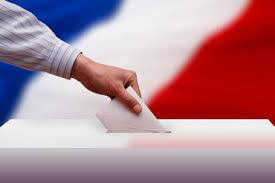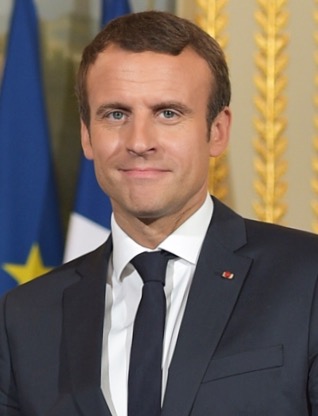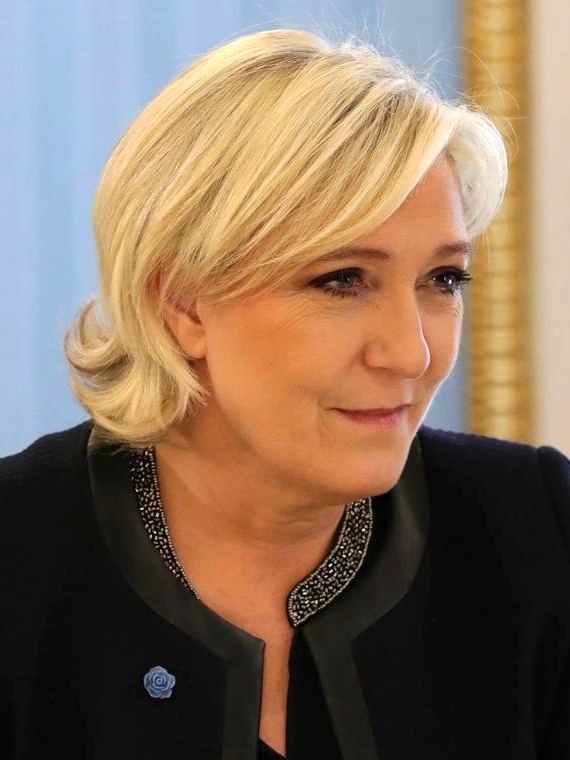Provalis Research/Infostats Analysis of Speeches in the French Presidential Election Campaign May 5, 2017 - Blogs on Text Analytics

This report is a summary of an analysis of the speeches of the five principal candidates in the French Presidential election campaign and it has a particular focus on the speeches of Marine Le Pen and Emmanuel Macron.
Methodology
We analyzed a total of 154 speeches given by five principal candidates in the French Presidential Election between January 20, 2016 and April 23, 2017. The speeches broke down this way; Benoit Hamon (20 speeches), Emmanuel Macron (35 speeches), Marine Le Pen (28 speeches) Jean-Luc Melanchon (26 speeches), and Francois Fillon (45 speeches). To perform the analysis we used the Provalis Research text mining, content analysis software WordStat. We selected words that appeared more than 50 times, expressions that appeared more than 15 times, in at least three different speeches of all five candidates. Then we compared the relative frequency which these words and expressions were used by each of the five candidates.
However, more than simply extracting the most frequently used words and expressions of each candidate and comparing them with each other, we also tried to identify the most characteristic elements of the speeches of the two candidates who emerged out of the first round of voting, Emanuel Macron and Marine Le Pen. We selected for each of them, words and expressions used at least two times more often any of the other candidates.
Also, to have a good sense of the candidate’s positioning we believe it is important to look at what they don’t say. We looked at words and expressions they omitted or avoided compared to the other candidates. We thought this was important because we analyzed speeches where the candidate was setting the agenda as opposed to debates or interviews where issues are raised proposed by others and the candidate is compelled to discuss them. This analysis gives one an indication of the themes or topics to which the candidate attaches less importance or to which they do not want to be associated.
For many of the words and expressions we used features in WordStat to verify the context in which they were used, to gauge the tone and to determine if they were positive or negative or what ideas they were promoting.
The numbers in parenthesis beside certain terms indicate the ratio between the frequency it is used by the candidate and their closest advisory. A score of (3.0x) indicates the candidate used the term proportionally three times more often than the candidate who used the term with the second highest frequency. Therefore, this was the minimum ratio we could get and the numbers would have been higher if we chose to use an average frequency compared to the other four candidates. On the other hand, for words that were used less frequently, a score of (-3.0x) indicates the candidate used the term three times less often than the candidate with the next lowest frequency.
The speeches of Emmanuel Macron and Marine Le Pen. We have not translated the actual words and phrases.
Emmanuel Marcon
The speeches of Emmanuel Macron are characterized by a vocabulary that uses words and expressions that promote change and point to future accomplishment: renouvellement (11.0x), mobilité (8.0x), mise-en-œuvre (6.4x), transformation (5.1x), avancer (3.6x), construire (3.0x), transformer (2.5x), ambition (2.4x), défi (2.2), défis (2.1), réforme (2.0x). He promotes and openness and optimism with words and expressions such as: faire réussir (14.9x) accéder (5.3x), êtres humains (5.0), opportunités (4.5x), dialogue social (4.5x), émancipation (4.2x), réconcilier (4.2x), accompagner (2.3x), ouvert (2.0), ouverte (2.0x). More than other candidates he talks about collectivity in  these terms: d’organisation collective (8.6x), de société civile (4.1x) de collectivités territoriales (2.3x). The tone of his speeches are largely positive: heureux (2.6x), formidable (2.5x) autonomie (2.1x) to give some examples. He is rarely negative and of the 67 words and expressions we found that were characteristic of Macron’s speeches only two had a negative tone; risques (3.8x) injuste (3.0x).
these terms: d’organisation collective (8.6x), de société civile (4.1x) de collectivités territoriales (2.3x). The tone of his speeches are largely positive: heureux (2.6x), formidable (2.5x) autonomie (2.1x) to give some examples. He is rarely negative and of the 67 words and expressions we found that were characteristic of Macron’s speeches only two had a negative tone; risques (3.8x) injuste (3.0x).
Contrary to the other candidates and, not surprisingly, Macron never mentions the names of politicians Hollande, Sarkozie, Hamon or Juppé, allowing him to remain positive and not draw an association to the past with which he clearly does not want to be associated. He never uses other modern but sometimes controversial terms like : libre échange, politique économique or conditions de travail. He rarely mentions a controversial labor law la loi El Khomri (-8.0x) and seldom uses these socio-economic words and terms pauvreté (-4.2x), pauvre (-2.9x), retraites (-2.5x), retraite (-2.2x), espérance de vie (-2.3x) salaires (-4.6x) et heures supplémentaires (-2.4x). Macron doesn’t often speak about nuclear energy nucléaire (-7.9x) and uses the term only when he is talking about defense and armaments. He also is the least likely of the candidates to talk about these two nations Russie (-2.5x) États-Unis (-2.1x).
Marine Le Pen
The speeches of Le Pen are clearly characterized by nationalism, protectionism and calling into question France’s continued participation in the European Union as well as traditional planks of the Front National platform mondialisation sauvage, immigration massive, immigration de masse, fondamentalisme islamique, ’intérêts privés (26.0x), patriotisme économique (21.9x), amour de la France (17,2x), frontière nationales (9.7x), indépendance de la France (x7.4), citoyenneté (6.8x), solidarité nationale (6.4x), peuple de France (6.0x), terrorisme islamiste (5.4x), concurrence déloyale (x5.1), patriotisme (5.0x), somewhat less, référendum (2.8x), intérêt national indépendance (2.4x) l’Union européenne (23.4x) Bruxelles (7.0x), mondialisation (3.2x), peuples (3.5x), libertés (3.1x) puissances (2.6x), monnaie (2.6x) Some of her comments that appear positive such as accueillir (2.2x) and diversité (2.0x) are in fact negative because they focus on problems related to immigration or to the European Union. The strong negative tone in Le Pen’s speeches distinguishes her from the other candidates. On the other hand, like the other candidates she complains about the médias (4.7x) its lack of independence or impartiality and asks her supporters to use réseaux sociaux (4.2x).
indépendance (2.4x) l’Union européenne (23.4x) Bruxelles (7.0x), mondialisation (3.2x), peuples (3.5x), libertés (3.1x) puissances (2.6x), monnaie (2.6x) Some of her comments that appear positive such as accueillir (2.2x) and diversité (2.0x) are in fact negative because they focus on problems related to immigration or to the European Union. The strong negative tone in Le Pen’s speeches distinguishes her from the other candidates. On the other hand, like the other candidates she complains about the médias (4.7x) its lack of independence or impartiality and asks her supporters to use réseaux sociaux (4.2x).
When we look at expressions never used by Le Pen the first one was not a great surprise, extrême droite, it is closely followed by projet européen, temps de travail, code du travail, liberté de conscience dialogue social, revenu universel, harmonisation fiscal and êtres humains. She never uses the words prévention or opportunités. Other words she uses but less frequently than others are génération (-4.0x), contrat (-3.3x), besoins (-2.8x), parlement (-2.7x), travail (-2.5x), collectivités locales (-2.5x), éducation (-2.0x), enseignants (-2.0x) apprentissage (-2.3x) which she uses with specific reference to the importance of learning the French language, French culture and history. Even though many of her opponents say Le Pen promotes fear in her speeches she uses the word peur (-2.2x) less frequently than her opponents. And when we looked back at Le Pen speeches from 2011-2015 and compared them with her speeches in 2016-2017 she uses peur 4.9 times less than she did in 2011 and 2015.
Conclusion
The speeches of Le Pen and Macron are very different in tone and use of language. She promotes a mistrust, an aversion and a disgust with the current political system. Because of the negative tone and expressions she uses, she is clearly hoping to connect with what she must believe is a like-minded view of a large part of the French public who shares her opinion of the past and the status quo. For his part Macron’s appears to be trying to connect with a desire for change and a break of the status quo but in a more positive tone and more temperate language without promoting radical measures such as dropping the Euro, exiting the EU and closing borders.
About Provalis Research
Provalis Research is a developer of text analytics software. Developing text analysis programs for more than 20 years, Provalis Research designs and brings to market text analytics tools that are essential to researchers and analysis worldwide.
About Infostats
Infostats is a new agency based in Tours, France, specializing in surveys (public opinion, customer satisfaction, social trends…) and web monitoring. Infostats.fr
